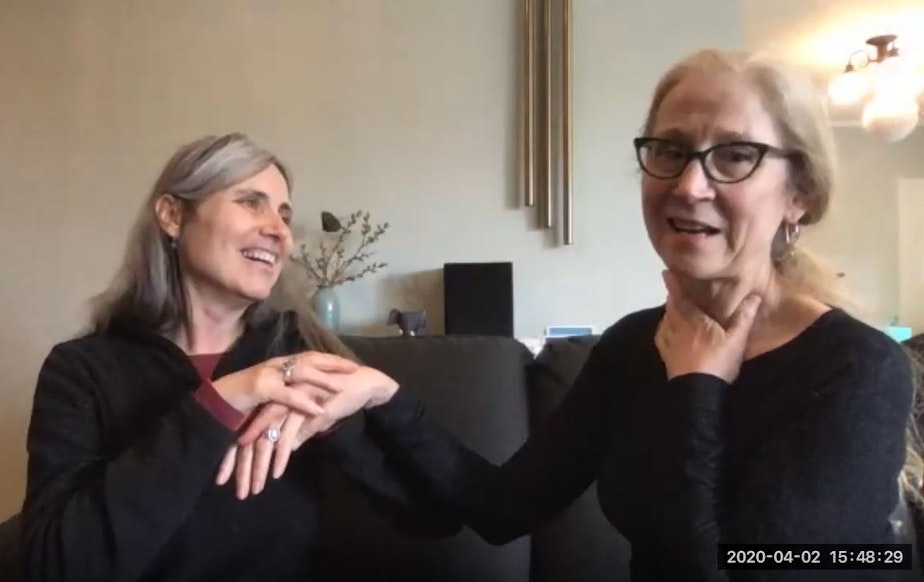I can't stop touching people. Even now during coronavirus

Voices of the Pandemic features people in the Seattle area who are on the front lines of the coronavirus outbreak.
We must stay apart at the moment. But Angela Theriault, director of the Seattle Deaf-Blind Service Center, can’t do that.
She's Deaf and almost completely Blind. She told KUOW how she relies on a special form of sign language called Pro-Tactile American Sign Language. She spoke through an interpreter.
Like when you laugh, or when you hear somebody laugh, or if Deaf people see somebody laugh, they can, you know, see that happening.
But if somebody is DeafBlind, you can put your hand on their neck or hold the interpreter's hand and put her hand on my neck where you can feel the laughter. Or hold her hand and just kind of scratch it showing the laughter in that way through touch, showing the laughter.
But avoiding touch is impossible for people who are DeafBlind, and that means that we are in a higher risk group. And also the people who are working with us are in a higher risk group.
Sponsored
We're unable to stay six feet apart. But without touch, for somebody who is fully Blind, there would be absolutely no communication.
And there is a risk, but I have to go ahead. The interpreter could have gloves and a mask. And if the interpreter didn't want to, then I would respect them in that choice, and I would request a different interpreter.
If I went to the doctor's office without an interpreter, how would we know what's going on? We have to have interpreters, period. And touch is part of that.
Reporter's note: In fact checking this story, interpreter Carolyn Traub told us there’s a convention of writing "deaf" when talking about the audiological perspective of lack of hearing and, "Deaf," when talking about the cultural linguistic minority group... Similarly, she told us "deaf blind" is usually written as "DeafBlind," recognizing the DeafBlind people as having their own culture.
For these reasons, we have capitalized these words in this story.
Producer Alec Cowan composed music for this story.




